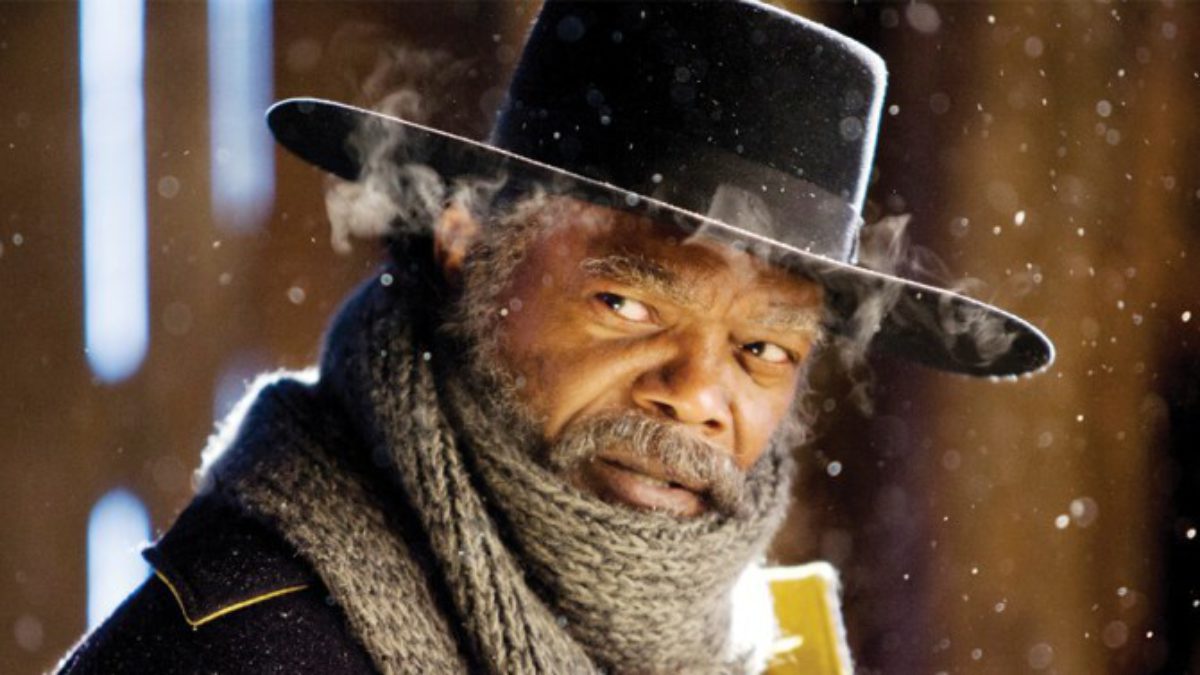
The western genre is a storied one. From the Sergio Leone zapata vehicles, whose towering Man with No Name trilogy continues to loom high as a cinematic infuence, to the subversiveness of Anthony Mann’s films, the undisputed classics have mostly retained their power. The western’s template has undergone decade after decade of revision and refinement to continually find and captivate audiences of all ages, demographics and persuasions. Its once straightforward morality conceits more malleable than once thought, the Western has brought some of the most memorable film characters of all time to life, and continues to light up the big and small screens alike. Often using star wattage and visual slickness to sell rugged storylines set upon frontier times in the American west, the Western continues to pump out interesting works.
In recent years, filmmakers have increasingly exercised considerable creativity in enmeshing western tropes with the horror, comedy and thriller genres – taking a distinct landscape and pitting their inhabitants against new dilemmas with subversive twists. For reference, films such as the brutally frightening Bone Tomahawk and the whip-paced Ron Howard-helmed The Missing have successfully mashed two fairly disaprate filmic styles together to craft stark and unsettling cocktails.
The western’s evolution has seen important films released from the 40s till the present day, and many owe a debt, or at the very least a tip of the fedora or stetson to, noir and crime thriller. The psychological-inflected western intitially channelled and drew upon wartime paranoia and often imbued its characters with layers of regret, uncertainty, brooding and deep-seated sadness in much the way noir does. Below is a list of films one could characterize as being of the psychological western mould – that is a revisionist take on the genre which, while retaining common themes and visual cues, deals increasingly with interpersonal relationships and the darkness associated with minds plagued by haunted histories. Tormented psyches aplenty, audiences kept guessing in the dark.
The films below offer darker thrills or the kind of domestic emotional whirlwinds more commonly found in classic melodrama. Or both. Less linear, more layered, sometimes rife with flashbacks, and often dealing with the enemy within and the torments of the past as much as the threat of a wayward bandit or indominable gunslinger.
10. Duel in the Sun (1946)
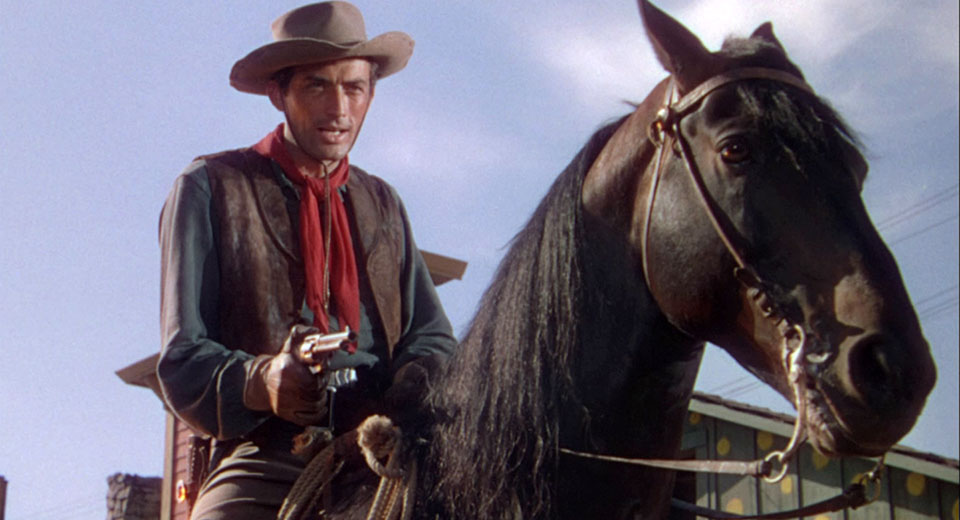
King Vidor’s swashbuckling romance drama polarized cinema goers at the time. Deemed schmaltzy and overambitious perhaps, the handsomely mounted oater still has its share of high-profile admirers (Martin Scorsese reportedly described it as an early influence) and its cast is impressive. With nice cinematography and an against-type Gregory Peck playing the less scrupulous brother (Lewt) of Joseph Cotten’s more dignified Jesse McCanles – the film contains fine elements. In many respects the film is a doomed romance set upon the plains, and many colorful characters pop up and disappear again relatively quickly (such as Walter Huston’s raving preacher).
Charming, if slight, Duel in the Sun is fairly set in its preoccuoation with the eternal battle to win over the affections of Jennifer Jones’ luminous Pearl Chavez. It’s a film that’s squarely interested in the pitfalls of excessive pride and the psychological warfare associated between men clamoring over ownership. Duel in the Sun is an interesting watch, intriguing in its imperfections – and could hold its own alongisde some of the most maudlin melodramas. The action, when it arrives, is sporadic but tense. Jones’ Pearl Chavez is an interesting and strong character as she stands strong and fights off the encroaching prejudice and game-playing she’s forced to contend with from all quarters. Narrated by Orson Welles.
9. The Bravados (1958)
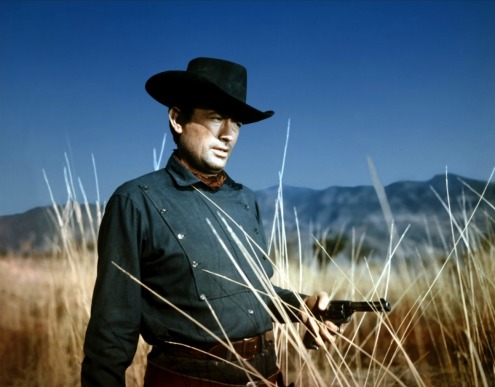
The Bravados is a great film and one that remains fairly dark and harrowing in its own right. While obviously not as bloodthirsty as say, The Wild Bunch (1969), Peck’s second western collaboration with director Henry King is rousing and exciting. Peck carries the film as the vengeful Jim Douglas and the film is really that, a shadowy, carnage-filled tale where revenge is the order of the day. Douglas is a man utterly convinced the four men he seeks are responsible for the death of his wife half a year prior. The support cast is fleshed out by an array of strong performers (such as Stephen Boyd and Henry Silva – whose menacing smile would become a trademark in his later villainous roles). All players render the characters more than mere cardboard cutouts.
Arriving a year after the release of Anthony Mann’s The Tin Star (1957), a film with a sensitive sheriff at its core and underpinned by a compelling story, The Bravados is a jarring contrast. It’s serioius and well-shot, and powerfully showcases the consequences of all-consuming revenge.
8. The Gunfighter (1950)
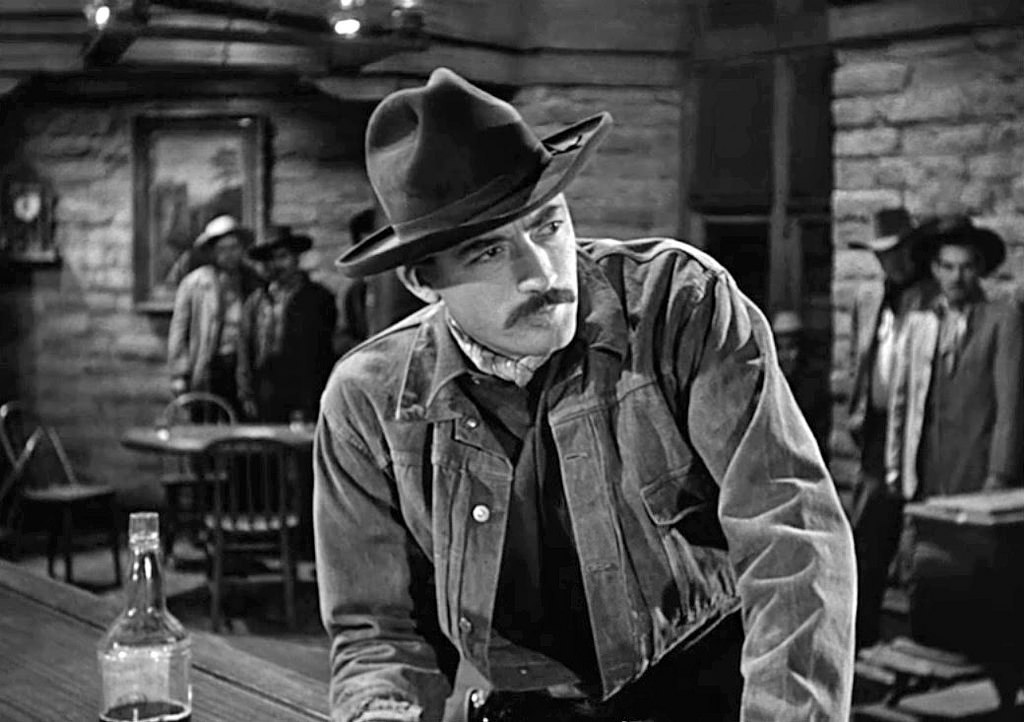
2 years prior to the seminal High Noon (a suspenseful flick in its own right), Henry King’s 1950 film brought a shadow-laden murkiness to the lead character of Johnny Ringo (supposedly a real fellow) in The Gunfighter. A character whom the intertitles suggest was the fastest gunsliger of the late 19th century (even swifter than Pat Garrett and Billy the Kid). The opening shot sees Peck’s Ringo hurtling across the desert on horseback, a lone ranger on the run from the life that’s plagued him. This trope was revivified in later films in the genre, but The Gunfighter reamains an interesting moment in the history of the western. Of course, its release coincided with a fascinating time in Hollywood history in general (the seminal Streetcar Named Desire came out the very next year), and it perhaps was one of the first clear westerns to demonstrate the reflectiveness a noted ‘tough guy’ is capable of.
Johnny Ringo is the quintessential antihero and Peck approaches the role perfectly, bringing brooding gravitas and rendering the famed outlaw a taciturn, later empathetic, jaded individual still capable of reckless impulsivity should anyone cross him. However preferring instead to now merely disarm his attackers. ‘There’s a squirt like you in every town in the west’, says Ringo as the next lad lines up to pick a fight with him. A simmering volcano nonetheless. Everywhere Ringo goes, it seems someone has a vendetta agsainst him, and once ensconced in Cayenne, trouble finds him (as predicted by Marshall Street (Millard Mitchell), despite him endearing himself to some of the townsfolk.
There are tense saloon sequences aplenty and the film is populated with excellent character actors (such as Karl Malden). Lean and economical, The Gunfighter is briskly paced, laced with melodrama and fronted by a cerebral, self-aware protagonist backdropped by moral dilemma.
7. Pursued (1947)
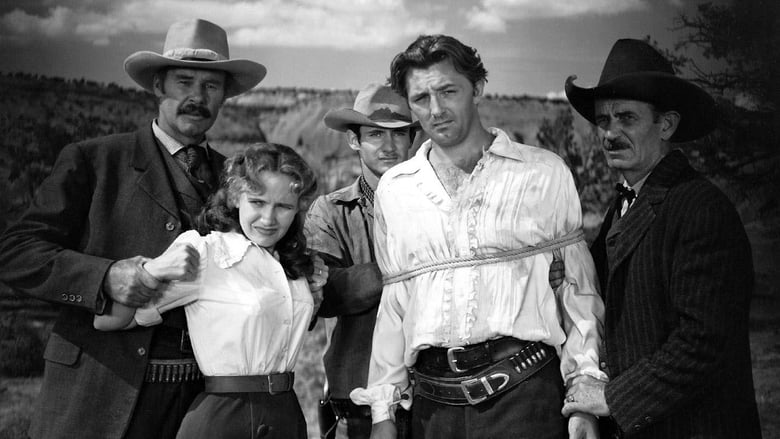
‘I always have a feeling something’s after me’. Raoul Walsh’s dark, ominous psychological western Pursued is simply superb. With noirish narration and a protagonist whose everpresent sense of doom hovers over his head like a stormcloud, Pursued is a different beast, and views like a suspense thriller with horses and hats.
The film follows Robert Mitchum’s Jeb Rand, orphaned as a youth, struggling to come to terms with a past he has largely suppressed. His family was wiped out in a nighttime raid when he was a child and it is a memory revelaed to the viewer in a series of increasingly detailed flashbacks. Brought in and raised by the apparently accomodating Callums, what he doesn’t know is there are certain members of the Callum clan with a long-standing grudge agains the Rands. When Jeb is shot at one day, his deep-seated trauma and paranoia is lured to the surface.
The villain of the piece is Grant Callum (a fantastically imposing Dean Jagger) and his unequivocal aim is to erase Jeb. Jeb feels threats from afar and one gets the distinct sense danger is lurking just off-frame all throughout the picture. Interesting in its dramatic score (which goes a long way towards heightening the suspense), and vaguely hardboiled dialogue – ‘I saw the boots of the pallbearers, flashes of light’ – Pursued is a finely crafted take on the western that benefits greatly from the the legendary James Wong Howe’s striking cinematography.
Haunted to the backteeth by a grim and darkness-riddled past, Jeb’s plight is complicatd when he become entangled with Thor Callum (a memorable Judith Anderson). There are some striking scenes in Pursued, with a ranch Jeb encounters (where he spent his earliest years) acting as a symbol of pain sitting on the landscape. When it comes to dramatic forays in the psychological western genre, Pursued sits right near the top.
6. Bad Day at Black Rock (1955)
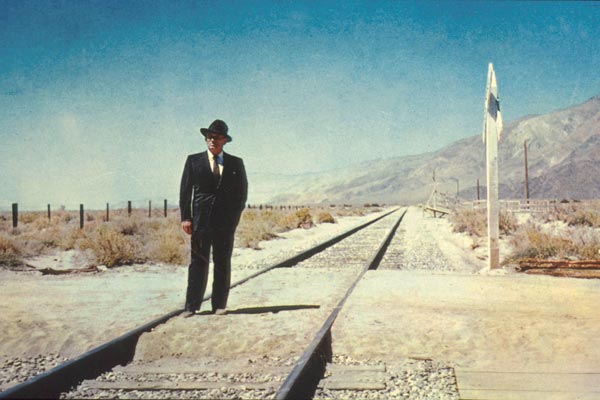
John Sturges’ chilling neo-western is a monolithic late 50s film and one that continues to contain important messages. It’s also a riveting mystery-thriller, one brimming with amoral characters dazzlingly brought to by a gallery of fearless performers. In short, it’s a landmark picture and a premier film in the psychological western mould.
Spencer Tracy’s McCreedy arrives a the small titular town in the Californian desert in 1945 looking to uncover the facts behind the disappearance of a man named Komoko. McCreedy is a war vet, and Komoko’s son died saving his life. He is greeted with widespread hostility, refused cabs, menaced by Lee Marvin’s Hector David (who walks unannounced into his hotel room) and is by and large made to feel distinctly unwelcome. Even the town sheriff (Dean Jagger) is cagey and town overseer Reno Smith (a never better Robert Ryan) waves his questions away and hoses down any suggestion of a coverup or untoward activty. Of course, Smith was the mastermind behind Komoko’s disppareance, orchestrating a policy of silence following the latter’s death. Mccreedy is dogged however, and in one of innumerable memorable scenes, dispatches one of Smith’s heavies (Ernest Borgnine) with ease despite only having one arm.
Black Rock is a riveting indictment of collective inaction when faced with a heinous crime, and examines the culpability of passive bystanding. It also challenges prejudice and contains some strong messages at its core. The third act is genuinely pulse-pounding, and the final cat-and-mouse chase between McCreedy and Smith could match it with the finale of the classic Audrey Hepburn starrer Wait Until Dark (1967) for sheer nerve-shredding suspence. A bona fide classic thriller/neo-western marriage.